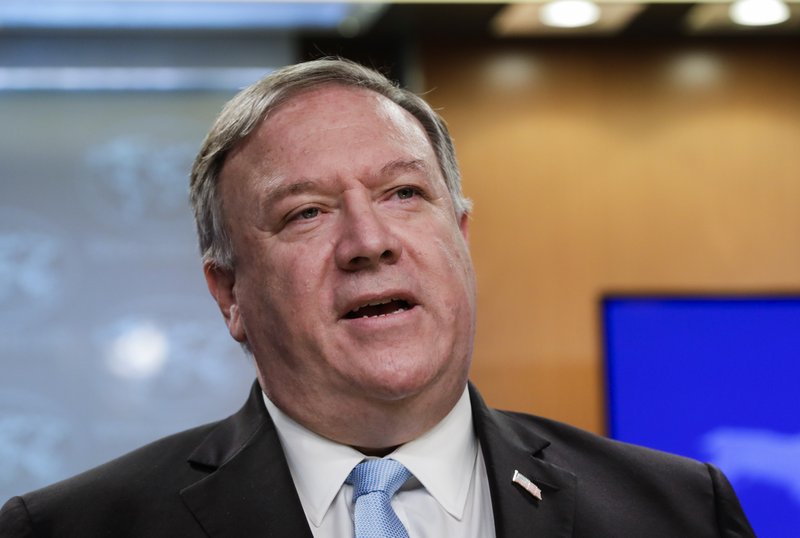U.S. Secretary of State Mike Pompeo said the decision by the U.N.’s top human rights body to commission a report on policing and race amid international protests spurred by George Floyd’s death “marks a new low” and confirmed the Trump administration’s decision to withdraw from the Human Rights Council in 2018.
The council agreed Friday in Geneva to commission a U.N. report on systemic racism and discrimination against Black people while stopping short of ordering a more intensive investigation singling out the United States. Floyd, a handcuffed Black man, died last month after a Minneapolis police officer pressed his knee into his neck for several minutes even after he stopped moving and pleading for air.
In response, Pompeo on Saturday described the Human Rights Council as “a haven for dictators and the democracies that indulge them” and said the council should focus its attention elsewhere.
“If the Council were serious about protecting human rights, there are plenty of legitimate needs for its attention, such as the systemic racial disparities in places like Cuba, China, and Iran,” Pompeo said in a statement Saturday.
Floyd’s relatives, families of other victims of U.S. police violence and hundreds of advocacy groups urged the Human Rights Council to take up the issue.
A human rights group based in the U.S., Human Rights First, countered Pompeo’s statement regarding Iran, saying that the council appointed an independent expert to monitor human rights in that country.
The Iran monitor’s Jan. 28 report expressed concern about deaths of protesters in detention, executions of under-age defendants, forced confessions and discrimination against minorities and women.
The consensus resolution approved Friday followed days of grappling over language after African nations backed away from their initial push for a commission of inquiry, the council’s most intrusive form of scrutiny, that would focus more on the U.S.
Instead, the resolution mentions historic racism in the U.S. but only calls for a more generic report to be written by the U.N. human rights chief’s office and outside experts.
The aim is “to contribute to accountability and redress for victims” in the U.S. and beyond, the resolution states.
(AP)











